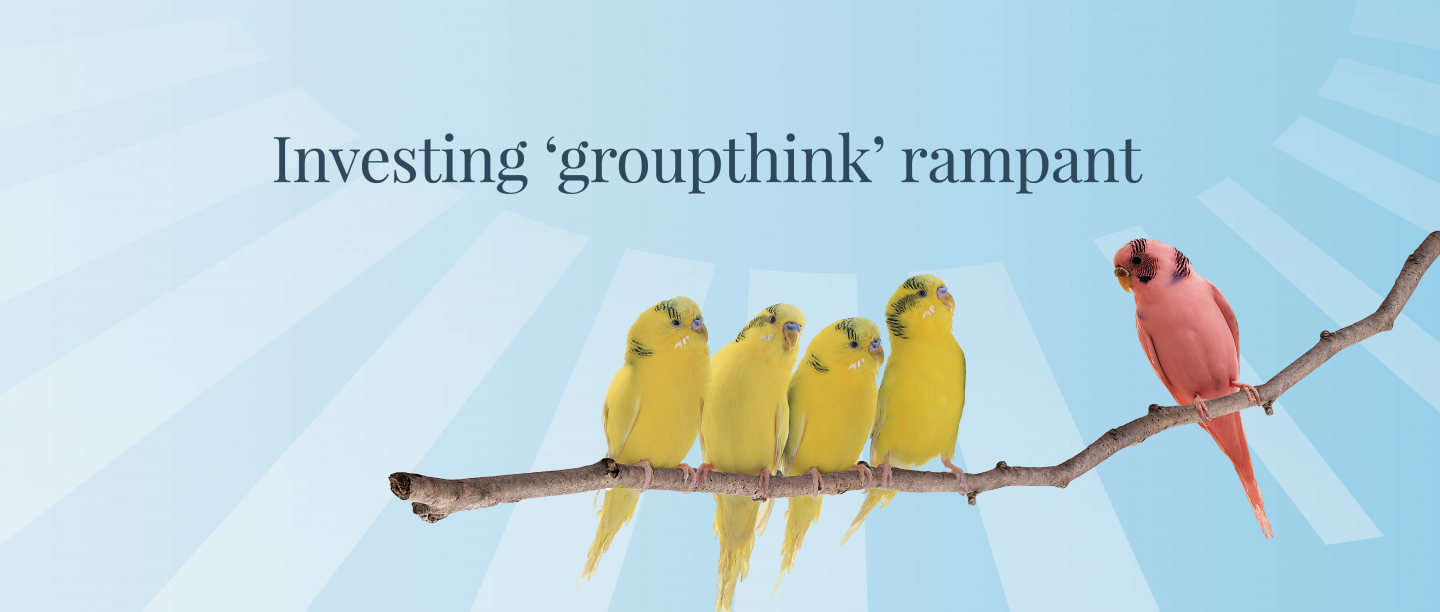Investing ‘groupthink’ rampant
Longer-term assessment of active fund performance can distinguish between managers that think independently – and those that deliver short-term outperformance by investing with the ‘in-crowd’
By Paul Moore, PM Capital
In almost four decades of investing, I have never seen ‘groupthink’ as rampant as it is today. More investors are buying a narrower group of the same popular stocks, setting themselves up for a nasty surprise when sentiment changes.
Market ‘noise’ affects human emotions, encouraging rash investment decisions and causing asset mispricing. A 24/7 news cycle and social media are amplifying volatility in global equities, and capital flows in & out of funds, irrespective of long-term performance.
I liken this madness to investors all standing on the same side of a ship. When equity markets are rising, it feels safe to be part of the ‘in-crowd’. But investors seldom build long-term wealth by owning the same stocks as everybody else. Buying a stock when it’s popular and selling it when it’s not, is not a recipe for investment success.
There are signs everywhere of in-crowd investing. In recent times, many investors clamored for large cap growth stocks with little regard to business quality and valuation. They ignored a once-in-a-generation opportunity to buy cyclical ‘value stocks’ and set their portfolio up for the opportunities of the next decade.
The boom in passive funds is another sign of in-crowd investing. Exchange Traded Funds (ETFs) often look good in bull markets but can be among the worst funds to hold when the overall market is expensive and only careful stock picking will generate acceptable returns.
In-crowd investing also manifests in active funds. Over the years, I have seen many new funds deliver strong short-term outperformance by investing with the in-crowd. Their high returns attract fund inflows, but once market sentiment changes the outperformance proves fleeting and often turns to sustained underperformance.
Make no mistake: high returns from global equities in the past decade are unlikely to persist. Generic market returns are likely to be much more subdued in the decade ahead. The tailwinds of low inflation and low interest rates that drove the bull market are abating. Investors who persist with those in-crowd stocks which are reliant on near zero interest rates to sustain their valuations will struggle.
So, what does this mean for financial advisers?
First, recognise the importance of active over passive investing. Investors who use ETFs to provide the market return this decade face lower returns. Active funds that have a record of capitalising on valuation anomalies are a far better choice.
Second, beware of unproven active fund managers that delivered short-term outperformance by investing with the in-crowd. Favour fund managers that have stood the test of time, have the same key personnel and a consistent investment style.
Third, assess active funds over multiple market cycles, not three or five years. In my experience, investment cycles take the better part of a decade to play out. Look for active managers that outperformed over a decade, and preferably over two consecutive decades. They are rare.
PM Capital’s flagship Global Companies Fund is the top-ranked fund in its Morningstar category over 10 yearsi, and the third-highest ranked fund over 20 years.ii The Fund’s multi-decade outperformance has come from patiently investing away from the in-crowd, not following it.
PM Capital this month launched a campaign to promote long-term assessment of active funds and raise awareness of the dangers of groupthink and in-crowd investing.
PM Capital Global Companies Fund
i To 30 September 2021. Source Morningstar Peer Rankings. Australian OE Equity World Large Blend.
ii ibid




